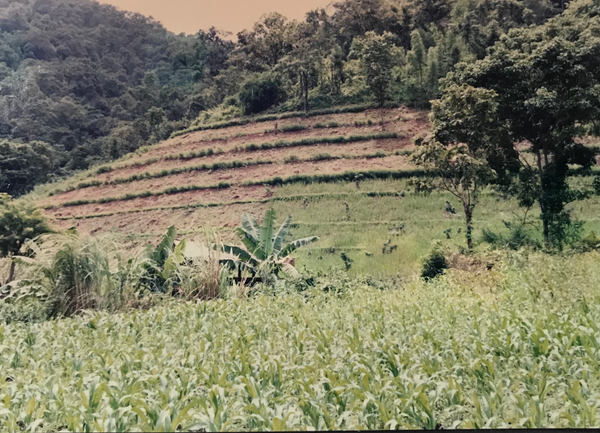Dave had come to Thailand two years prior exactly for the opportunity that he was now presented with. Ethnic minority hillside farmers had been experiencing lower crop yields even with their efforts in using more chemical fertilizer.

Even to Dave, who had no formal agriculture education, the cause of the problem was apparent. Erosion had removed their top soil and left them with poor soil void of organic matter, minerals, and micro-nutrients.
Fortunately, Dave was mentored by a local agriculture missionary who had learned ‘Sloping Agriculture Land Technology’ (SALT) from the creators of this methodology in the Philippines. Hands-on experience was included in Dave’s mentorship so he got to know the system well.
Furthermore, the Thai government provided free seeds in their support and promotion of conservation practices among hillside farmers in northern Thailand. So Dave was equipped with the know-how and the seeds needed in providing the solution these farmers needed.
Since Dave’s Thai language skills were not proficient to conduct trainings, he hired a northern Thai farmer, Shua, who had a relationship with these farmers. He grasped SALT quickly, was confident, a good communicator, and cared for these marginalized farmers.
Surely, with such a simple, proven technology, free seeds, free equipment, free assistance, and the prospect of increased crop yields, Dave anticipated not only immediate adoption and implementation in the coming growing season but wide spread adoption once other farmers in the area witnessed these increased yields.
Naturally, Dave was quite confused and disappointed when only 1 out of 35 farmers who attended the SALT workshop implemented SALT on one of his parcels of land. Shua experienced successive years of increased yields. To his delight, each year yielded more than the previous one. With the profits he was able to re-roof his house as well as buy a motorcycle and a truck.
Additionally, even though the smallholder farmers raising crops close to Shua’s land saw the increase productivity, none of them even tried SALT. This puzzled Dave even more. He wondered . . . ‘What did I do wrong?’; “Why did so many turn away from what could have increased their income and raised their standard of living?” These questions began a long and ongoing journey of seeking to understand community development and the tools available for empowering communities.
Dave actually began to gain insights into factors and dynamics he had never considered when he attended a CDE (Community Development Education) training and implemented a CDE program. This included insights into such things as:
- Fear,
- Risk Perception,
- ‘The adoption Bell Curve’,
- Social Approval,
- Poverty Mentality,
- Unfair Market Influences,
- Resistance to Change,
- Anticipated Jealousies,
- Respect of Tradition,
- False Assumptions,
- Mistrust,
- Importance of Relationship Building and Ownership,
- Time-Line Realities, and more.
To learn of these and other valuable insights gained through this experience, please consider signing up for Dave’s auto responder series (Discoveries in Effective Community Development) in which he explains the simple but essential principles that he has taught to hundreds of development workers for the past 17 years after he had the experience above.